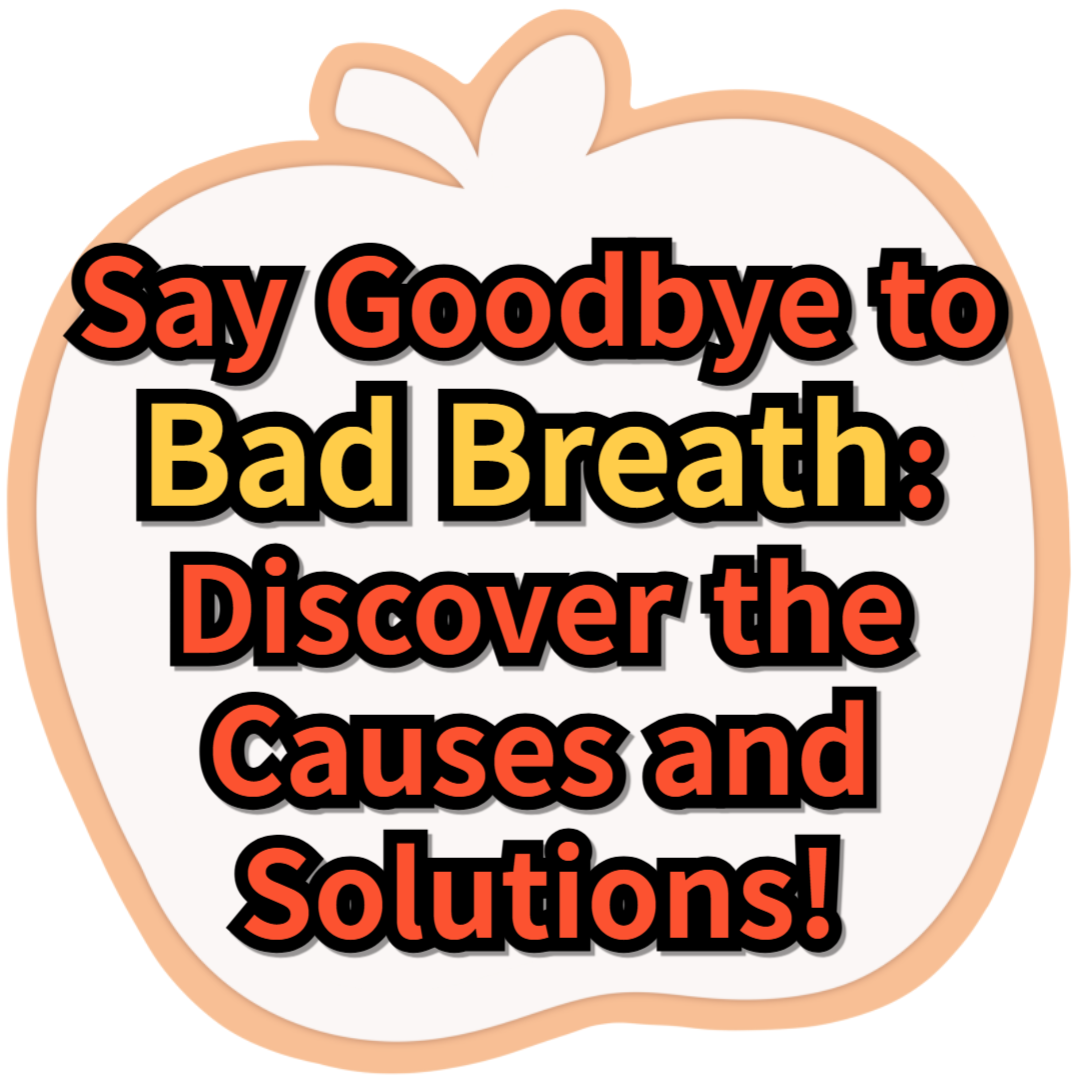Understanding the Causes of Bad Breath
Bad breath, also known as halitosis, is a common issue that can be both embarrassing and concerning. It can affect anyone at any age and can be caused by a variety of factors. In this blog post, we will explore the primary causes of bad breath, how to identify them, and what you can do to prevent and treat this condition.
Poor Oral Hygiene
One of the most common causes of bad breath is poor oral hygiene. When you don’t brush and floss regularly, food particles can remain in your mouth, promoting bacterial growth between teeth, around the gums, and on the tongue. This bacteria can produce unpleasant odors.
- Brushing and Flossing: It’s essential to brush your teeth at least twice a day and floss daily to remove food particles and plaque. Use fluoride toothpaste and a soft-bristled toothbrush to avoid damaging your gums and enamel.
- Tongue Cleaning: Using a tongue scraper can help remove bacteria and food debris from the surface of your tongue.
- Regular Dental Check-ups: Visiting your dentist regularly for cleanings and check-ups can help prevent oral health issues that contribute to bad breath.
Improving your oral hygiene involves consistent and thorough care. Here are some tips to enhance your routine:
- Brush Properly: Brush your teeth at least twice a day with fluoride toothpaste. Make sure to brush for at least two minutes, covering all areas of your mouth.
- Floss Daily: Flossing helps remove plaque and food particles between your teeth that a toothbrush can’t reach.
- Use Mouthwash: An antibacterial mouthwash can help reduce bacteria that cause bad breath.
- Stay Hydrated: Drinking plenty of water helps keep your mouth moist and washes away food particles and bacteria.
Dietary Choices
What you eat can significantly impact your breath. Certain foods, such as garlic, onions, and spicy dishes, can cause bad breath. These foods contain sulfur compounds that are absorbed into the bloodstream and expelled through the lungs, resulting in noticeable odors.
- Avoiding Trigger Foods: Limiting your intake of foods known to cause bad breath can help manage the issue. Foods to avoid include garlic, onions, cheese, and canned fish.
- Hydration: Drinking plenty of water helps keep your mouth moist and washes away food particles and bacteria.
- Healthy Diet: Eating a balanced diet with plenty of fruits and vegetables can promote good oral health and fresh breath.
To prevent bad breath, consider avoiding the following foods:
- Garlic and Onions: These contain sulfur compounds that can cause bad breath.
- Cheese: Dairy products can release sulfur compounds when their amino acids react with oral bacteria.
- Canned Fish: These can leave a lingering odor in the mouth.
- Coffee and Alcohol: Both can cause dry mouth, reducing saliva production, which normally helps cleanse your mouth.
Medical Conditions
Sometimes, bad breath can be a sign of an underlying medical condition. Conditions such as dry mouth (xerostomia), respiratory infections, and gastrointestinal issues can all contribute to halitosis.
- Dry Mouth: Saliva helps cleanse the mouth and remove particles that cause bad odors. If you have dry mouth, it can lead to bad breath. Drinking water and using saliva substitutes can help. Dry mouth can be caused by medications, certain medical conditions, or simply not drinking enough water.
- Infections: Respiratory infections, such as sinusitis or bronchitis, can cause bad breath due to the presence of bacteria and mucus.
- Gastrointestinal Issues: Conditions like acid reflux or GERD can cause stomach acids to flow back into the esophagus, leading to bad breath.
Dry mouth, or xerostomia, occurs when your salivary glands don’t produce enough saliva to keep your mouth wet. This can lead to several issues, including bad breath. Saliva helps cleanse your mouth by washing away food particles and bacteria. Without enough saliva, bacteria can grow, leading to bad breath and an increased risk of tooth decay and gum disease. Dry mouth can be caused by various factors, including medications, medical conditions, and dehydration.
Conclusion
Bad breath can be a distressing condition, but understanding its causes can help you take steps to prevent and treat it. Maintaining good oral hygiene, making mindful dietary choices, and addressing any underlying medical conditions are key to keeping your breath fresh. If you continue to experience bad breath despite these efforts, it’s important to consult with a healthcare professional to rule out any serious health issues. By taking proactive measures, you can enjoy fresher breath and greater confidence in your daily interactions.
Related Articles You Might Enjoy. 7 Essential Tips for Treating and Preventing Periodontal Disease
